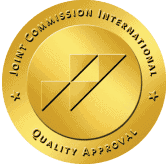Are you searching for a breakthrough treatment that addresses both trauma and addiction? You deserve a therapy approach that heals the root causes of substance use while building lasting recovery skills. EMDR (Eye Movement Desensitization and Reprocessing) offers a scientifically-proven path to freedom from addiction by processing traumatic memories that often fuel substance use behaviors.
What is EMDRand how does it help addiction?
You may have heard about EMDR as a trauma therapy, but its applications in addiction treatment are transforming recovery outcomes. EMDR is a structured therapy approach that helps you process disturbing memories and experiences through bilateral stimulation – typically eye movements, taps, or sounds. When you engage in EMDR therapy, your brain naturally processes stuck traumatic memories that often drive addictive behaviors.
Treatment centers recognize that trauma and addiction frequently go hand-in-hand. Research shows that up to 75% of individuals seeking addiction treatment have experienced significant trauma. EMDR addresses this connection by helping you:
- Process traumatic memories without reliving the pain
- Reduce emotional triggers that lead to substance use
- Build healthier coping mechanisms
- Decrease anxiety and depression symptoms
- Improve self-esteem and emotional regulation
The therapy works by activating your brain’s natural healing processes. During EMDR sessions, you’ll focus on specific memories while engaging in bilateral stimulation, allowing your brain to reprocess these experiences in a healthier way.
What are the signs you need EMDR therapy?
You might benefit from EMDR therapy if you’re experiencing any combination of addiction and trauma-related symptoms. Professional treatment centers look for these key indicators when recommending EMDR:
- Recurring nightmares or flashbacks related to past events
- Using substances to numb emotional pain or traumatic memories
- Intense emotional reactions to specific triggers
- Difficulty trusting others or forming healthy relationships
- Persistent feelings of shame, guilt, or worthlessness
- Avoiding places, people, or situations that remind you of trauma
- Physical symptoms like headaches or stomach problems with no medical cause
- Difficulty sleeping or concentrating
- Feeling emotionally numb or disconnected from others
- Engaging in self-destructive behaviors beyond substance use
- Experiencing panic attacks or severe anxiety
- Having intrusive thoughts about past traumatic events
If you recognize several of these symptoms in your life, EMDR therapy integrated into addiction treatment could provide the breakthrough you need for lasting recovery.
How does EMDR work in addiction treatment programs?
When you enter treatment, EMDR therapy typically becomes part of a comprehensive recovery plan. Treatment centers integrate EMDR into various program levels to ensure you receive appropriate care based on your needs.
In Drug rehab settings, you’ll participate in EMDR sessions as part of your daily therapeutic schedule. The intensive nature of residential treatment allows for frequent EMDR sessions, helping you make rapid progress in processing traumatic memories while in a safe, supportive environment.
Partial hospitalization program (PHP) participants receive EMDR therapy during their daily treatment hours. You’ll attend therapy sessions during the day and return home in the evenings, allowing you to practice new coping skills in real-world settings while maintaining intensive therapeutic support.
Intensive outpatient program (IOP) incorporates EMDR into your treatment schedule, typically offering sessions 3-5 times per week. This level of care works well if you’ve already made progress in recovery but still need regular EMDR therapy to address underlying trauma.
Outpatient program (OP) provides EMDR therapy on a weekly or bi-weekly basis, perfect for maintaining your progress and addressing any emerging issues as you navigate long-term recovery.
The proven effectiveness of EMDR for addiction
Recent research demonstrates EMDR’s powerful impact on addiction recovery. A 2023 meta-analysis examining 561 participants across eight countries found that EMDR therapy produces medium to large effect sizes in treating substance use disorders. Specifically, the research showed:
- Significant reduction in substance use behaviors
- 91% improvement in treatment engagement and completion rates
- Decreased cravings with a standardized mean difference of -0.866
- Enhanced motivation for recovery
- Improved emotional regulation and stress management
Treatment centers report that clients who receive EMDR therapy often experience faster breakthroughs than with traditional talk therapy alone. The bilateral stimulation used in EMDR appears to unlock the brain’s natural healing capacity, allowing you to process years of trauma in a matter of months rather than years.
What happens during EMDR therapy sessions?
Your EMDR journey begins with a thorough assessment where trained therapists identify target memories and develop a treatment plan. During sessions, you’ll experience:
- History taking and treatment planning phase
- Preparation with coping skills and relaxation techniques
- Assessment of specific memories and associated beliefs
- Desensitization through bilateral stimulation
- Installation of positive beliefs and self-concepts
- Body scan to identify and release physical tension
- Closure with grounding techniques
- Re-evaluation in subsequent sessions
Each session typically lasts 60-90 minutes. You remain fully conscious and in control throughout the process. Unlike some therapies that require you to relive traumatic experiences in detail, EMDR allows healing without re-traumatization.
Who benefits most from EMDR in addiction treatment?
While EMDR can help anyone struggling with addiction and trauma, certain individuals see particularly strong results. You’re an ideal candidate for EMDR if you:
- Have a history of childhood trauma or abuse
- Experience PTSD symptoms alongside addiction
- Haven’t found success with traditional therapy approaches
- Struggle with specific traumatic memories that trigger substance use
- Want to address root causes rather than just symptoms
- Feel ready to process difficult emotions in a safe environment
- Have co-occurring mental health conditions like anxiety or depression
Treatment centers carefully screen clients to ensure EMDR is appropriate for their specific situation. Some individuals may need stabilization before beginning EMDR, particularly if they’re in early recovery or experiencing severe mental health symptoms.
Combining EMDR with evidence-based addiction therapies
EMDR works synergistically with other proven addiction treatments. Treatment centers typically combine EMDR with:
- Cognitive Behavioral Therapy (CBT) for changing thought patterns
- Dialectical Behavior Therapy (DBT) for emotional regulation
- Group therapy for peer support and connection
- Family therapy to heal relationship wounds
- Medication-assisted treatment when appropriate
- Mindfulness and meditation practices
- 12-step or alternative recovery programs
- Holistic therapies like yoga or art therapy
This integrated approach ensures you receive comprehensive care that addresses all aspects of addiction and recovery. EMDR provides the trauma resolution component that’s often missing from traditional addiction treatment.
Long-term benefits of EMDR in recovery
The effects of EMDR extend far beyond your initial treatment period. Clients who complete EMDR therapy report lasting benefits including:
- Sustained reduction in cravings and triggers
- Improved relationships and communication skills
- Greater emotional stability and resilience
- Enhanced self-worth and confidence
- Better sleep quality and physical health
- Reduced need for psychiatric medications
- Stronger recovery maintenance skills
- Ability to face life challenges without substances
Many individuals find that EMDR not only helps them overcome addiction but also improves their overall quality of life in ways they never expected.
Frequently asked questions about EMDR and addiction treatment
Yes, EMDR therapy is available across all treatment levels. In Intensive outpatient program (IOP) settings, you’ll receive EMDR sessions multiple times per week as part of your treatment schedule. Outpatient program (OP) participants typically have weekly EMDR sessions. The frequency depends on your specific needs and treatment goals. Many clients successfully complete EMDR therapy while maintaining work and family responsibilities through outpatient care.
The duration of EMDR treatment varies based on your unique history and needs. Some individuals experience significant relief after 6-12 sessions, while others may need several months of therapy. In Drug rehab or Partial hospitalization program (PHP) settings, you might have EMDR sessions 3-5 times per week, accelerating your progress. Treatment centers develop individualized plans to ensure you receive the right amount of therapy for lasting results.
EMDR is generally safe and well-tolerated, but treatment centers carefully assess each client’s readiness. You’ll need some stability in recovery before beginning EMDR – typically at least 30 days of sobriety. Individuals with certain conditions like uncontrolled bipolar disorder or psychosis may need additional stabilization first. Your treatment team will determine the best timing for introducing EMDR into your recovery plan.
Experiencing intense emotions during EMDR is normal and actually indicates the therapy is working. Treatment centers provide comprehensive support to help you manage these feelings safely. You’ll learn coping skills before starting EMDR, and therapists monitor your emotional state throughout sessions. The structured nature of EMDR ensures you process emotions without becoming overwhelmed, and support is available 24/7 in Drug rehab and PHP settings.
Contact Assure Recovery
Don’t let trauma and addiction control your life any longer. EMDR therapy can help you break free from the painful memories fueling your substance use. While we don’t offer EMDR therapy internally, we work with providers who integrate EMDR into treatment programs designed for lasting recovery. Take the first step toward healing today. Call Assure Recovery at (833) 530-0291 to speak with a compassionate admissions specialist about how EMDR therapy can transform your recovery journey.



